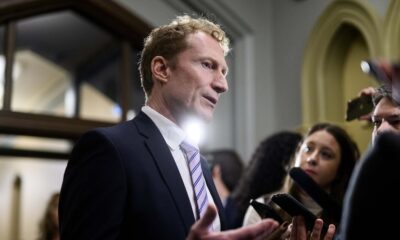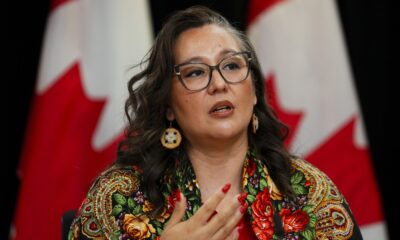Business
Saskatchewan to Receive Tobacco Settlement Funds Amid Calls for Health Investment

The Government of Saskatchewan is set to receive its first allocation from a federal tobacco settlement amounting to $32.5 billion. This settlement is a legal agreement requiring major tobacco companies to compensate the Government of Canada for the public health harms and financial losses their products have caused. Although Saskatchewan is expected to receive approximately $700 million, there are growing concerns about how these funds will be utilized.
The province has indicated that the funds will be directed to its general revenue fund, but there has been no specific commitment to allocate resources towards reducing tobacco use. In their initial claims, provincial and territorial governments highlighted the severe public health issues linked to tobacco and the aggressive marketing strategies of tobacco companies. Critics argue that without remedial actions, such as an updated tobacco reduction framework, the government risks undermining its earlier assertions about the need for proactive measures.
Tobacco continues to be the leading cause of preventable death in both Saskatchewan and Canada. It accounts for nearly one-third of all cancer deaths and contributes significantly to chronic respiratory and cardiovascular diseases, which place a heavy burden on the healthcare system. Currently, around 64,000 residents in Saskatchewan live with chronic obstructive pulmonary disease (COPD), a condition primarily caused by smoking. These statistics translate into real lives affected—parents who miss significant moments in their children’s lives and individuals whose futures are tragically cut short.
While the provincial government has yet to commit to using a portion of the settlement funds for tobacco control, organizations such as Lung Saskatchewan are advocating for action. Recently, Lung Saskatchewan, led by CEO Erin Kuan, collaborated with various provincial health agencies to discuss the development of a comprehensive tobacco cessation and prevention framework. This coalition aims to guide the government in implementing evidence-based strategies for reducing tobacco use in the province.
Looking ahead, there is a pressing need for sustainable funding sources for tobacco prevention and cessation. Implementing a cost recovery fee on tobacco companies, similar to models adopted in other jurisdictions, could provide a reliable funding stream. Such a fee would hold the tobacco industry accountable for the health and social harms their products inflict, ensuring that revenue generated from tobacco sales is reinvested into public health initiatives.
Investing in tobacco control programs is not only ethically sound but also economically beneficial. Every dollar spent on prevention and cessation can yield multiple dollars in avoided healthcare costs and enhanced productivity. Failure to address tobacco use effectively could reverse decades of progress in public health, particularly as young people remain targets for tobacco and vaping companies.
Lung Saskatchewan urges the provincial government to allocate a small but significant portion—less than 5% of Saskatchewan’s total settlement amount—towards tobacco cessation, education, and protection initiatives. The organization calls on citizens, health professionals, and community leaders to advocate for these funds to be used for their intended purpose: to mitigate the devastating health impacts caused by tobacco.
The funds secured from this settlement should not merely fill budget gaps; they are an opportunity to invest in the health of the community. The lives of Saskatchewan residents depend on a proactive approach to tobacco control, preventing future health crises linked to tobacco products.
-

 Politics4 weeks ago
Politics4 weeks agoSecwepemc First Nation Seeks Aboriginal Title Over Kamloops Area
-

 World5 months ago
World5 months agoScientists Unearth Ancient Antarctic Ice to Unlock Climate Secrets
-

 Entertainment5 months ago
Entertainment5 months agoTrump and McCormick to Announce $70 Billion Energy Investments
-

 Science5 months ago
Science5 months agoFour Astronauts Return to Earth After International Space Station Mission
-

 Lifestyle5 months ago
Lifestyle5 months agoTransLink Launches Food Truck Program to Boost Revenue in Vancouver
-

 Technology3 months ago
Technology3 months agoApple Notes Enhances Functionality with Markdown Support in macOS 26
-

 Lifestyle3 months ago
Lifestyle3 months agoManitoba’s Burger Champion Shines Again Amid Dining Innovations
-

 Top Stories2 months ago
Top Stories2 months agoUrgent Update: Fatal Crash on Highway 99 Claims Life of Pitt Meadows Man
-

 Politics4 months ago
Politics4 months agoUkrainian Tennis Star Elina Svitolina Faces Death Threats Online
-

 Sports5 months ago
Sports5 months agoSearch Underway for Missing Hunter Amid Hokkaido Bear Emergency
-

 Politics5 months ago
Politics5 months agoCarney Engages First Nations Leaders at Development Law Summit
-

 Technology5 months ago
Technology5 months agoFrosthaven Launches Early Access on July 31, 2025



















